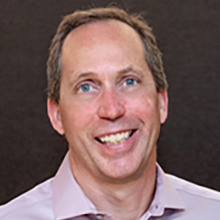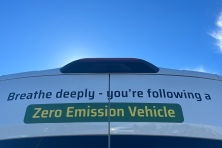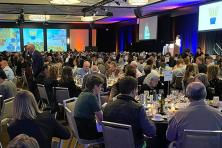We’re ready for an era built upon profound policy success and an increasingly diverse and broad movement for change, yet taking place against the backdrop of worsening climate impacts and our failure thus far to tame the upward curve of harmful emissions.
Over the past several years, Climate Solutions has focused on passing policies that would create the foundation to rapidly reduce climate pollution, and accelerate the transition to cleaner, more equitable ways to power our economy. The results have been stunning. The Pacific Northwest region stands as one of the unquestioned leaders in the United States in taking large-scale climate action.
Our region is now on a rapid path toward 100% clean energy, including both Washington and Oregon. We are cutting transportation pollution up and down the West Coast with clean fuel standards and other policies that will reduce pollution from cars, trucks, and vans. A growing list of state and local jurisdictions are acting to address the fastest growing source of climate pollution in the region: gas for heating and cooling our buildings. Washington will be the second state to enact an economy-wide cap on carbon pollution and drive billions of dollars in investments in solutions through implementing our landmark law, the Climate Commitment Act. The past four years have been, by any measure, incredible for climate progress in the region.
Both new and existing coalitions that included deep leadership from tribes, Black-led organizations, Latino leaders, Asian American businesses and many more, made these forward-looking solutions happen. The Clean Air, Healthy Communities Coalition, for example, is a growing, multi-sector group of advocates with the goal of reducing public health impacts on Oregonians—ensuring that Oregon achieves its climate pollution goals in the transportation sector, and supporting a transition to a clean energy economy that is more just and equitable. Most recently that coalition led the successful fight to have Oregon be the first state to join California to address climate and air pollution from trucks and vans. Washington State soon followed!
Yet, during this same period of immense policy wins and an emerging expansive movement, our emissions trends continued to move in the wrong direction, and the impacts of climate change hit our region with devastating intensity. Last summer was full of extremes, with historically large wildfires in California, Oregon, and Washington. An unprecedented heat wave caused the deaths of hundreds in our region, especially threatening the most vulnerable including low-income and seniors. Floods wiped out homes and lives throughout the region. Climate emissions in the United States, depressingly, rose more than 6% in 2021.
The core challenge of this new era is about turning our policy wins into progress on the ground. It’s not enough to simply pass good laws. We must make sure that our leaders and agencies implement new policies well, equitably and inclusively, so that people and communities experience tangible, broadly shared benefits, and our states achieve their desired goals.
What will success look like in the coming years if we are successful in implementing and investing well? More solar panels and wind turbines installed; cheaper and more accessible electric vehicles for all; reliable electric vehicle charging stations in more communities; electric buses replacing dirty diesel buses, especially in places with the worst air quality. More natural solutions across both states, especially in our rural and Tribal communities. Increased and increasingly affordable transit options for those that need them the most. Good family wage jobs. Research and development that can accelerate newly emerging technologies, and more.
In the short-term, implementation and investment, along with new policies to reduce the use of gas in our buildings, will not immediately bend the emissions curve or dull the devastating impacts. Historic pollution is already baked into the atmosphere, and more impacts in the coming years are all but inevitable. It’s hard to write those words, but the science and the trends are overwhelming.
What our actions of the next few years can and must do is to:
- make clear that a rapid transition is well underway, shifting away from fossil fuels and toward building a new way to power our economy;
- tell stories and show how that transition is coming soon to everyone’s communities, and is affordable, accessible, inevitable and enticing; and
- ensure that the investments and policies that are happening now offer real and noticeable benefits, especially for people of color, lower-income individuals and families, and rural communities.
These next few months, Climate Solutions will be actively engaging policymakers in short legislative sessions in Oregon and Washington, and a once-every-three years State Building Codes Council process in Washington. We’ll be working with local jurisdictions on electrifying our buildings, and engaging in a large number of rulemaking and other critical processes for implementing recently passed bills. You’ll be hearing from us about those immediate opportunities, and we hope you can help out with your time and support.
We’re also starting to map with others what implementing these groundbreaking laws will look like, and we are currently engaged in our own strategic planning. Later this spring, after legislative sessions are completed, once we have consulted closely with our allies and we have finalized our next strategic plan, we will have achieved increased clarity about how best to shift into this new era. We will be even more ready to make the most of these incredible opportunities for leadership and progress.
In the coming months, we will share more details for what we think is ahead for climate leadership in the Pacific Northwest.
I look forward to doing this work in partnership with you.





